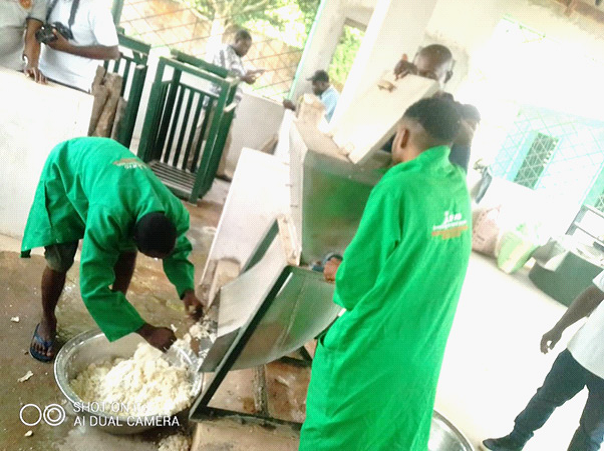OVER the last three decades, there have been strategic advances in the fields of science and technology to beef up food production across Nigeria, acountry blessed with surplus arable land. The universities and research institutes had spearheaded research and development efforts geared towards improvements in food production. The outcomes are very visible during harvest periods: surplus tubers, grains, vegetables and fruits
Unfortunately, the insecurity in parts of the country adversely affects food production, plunging the country into serious food security challenges. Yet the country has remained resilient in agricultural production.However, a critical impediment to the nation’s agricultural production is the seeming lack of storage devices nationwide to preserve the enormous farm produce that get wasted during harvest seasons. It is estimated that about 30 per cent to 50 per cent post-harvest losses are recorded yearly with respect to the various types of food produced in the country. This, in our esteemed perception, is utterly unacceptable. It is embarrassing that the country still loses such quantum of food annually in the 21st century.
With adequate storage of farm produce, the country is guaranteed annually of all-year-round food security, even to the point that she can export surpluses. Over time, leading universities and research groups have piled their libraries with works on how to develop technologies for storage of food items that can be actualized and commercialized for public consumption. Characteristically, lack of funding or unwillingness to finance such innovative ideas had kept such research reports on the shelves.
The point we are making here is that Nigeria has to step out boldly to tackle the challenge of food storage by massively investing in the commercial development of the solid research work on the subject matter. In other words, the national and sub-national governments, and private corporations should defy all odds to move the research solutions hidden in texts to the practical world of agriculture as mechanized instruments, devices or facilities for the storage of food items.
Fortunately, a lecturer in one of the universities in South West Nigeria recently unveiled a storage chamber for fruits and vegetables, which he said could keep them fresh for 12 months. He was able to develop the device through funding from his university and some grants. This is worthy of celebration but no applause yet has come from the appropriate quarters. This is a project that should immediately be adopted for commercial production, publicly or privately, to minimize post-harvest losses that run into billions of naira annually.
Well, an Asian commercial giant might just sneak up, take advantage of the invention and start mass producing it for the Nigerian and African markets. This happened with the pounded yam device that was developed by the University of Ibadan years ago, according to some reports. After a long while of inactivity, an Asian firm took the innovation and began producing the system for Nigerians. And we have been buying it. Yes, because we love pounded yam.In April, 2025, an onion storage facility was inaugurated in Kano by the Federal Government. The N10billion storage infrastructure has capacity of 10,000 tonnes and can preserve onions and other perishable vegetables for six months to eight months. This is quite appreciable.
But it perhaps meets less than five per cent of the nation’s storage needs to combat losses after harvest.The type of storage facility for onion and the one developed by the academic is what should be replicated for the nation’s variety of crops like yam, potato, cassava, rice, beans, corn, millet, sorghum, tomato, pepper, and other vegetables.
They are also needed for fruits like pineapple, orange, mango, pawpaw and pear. Such facilities should be available in each of the 36 States of the country and the capital city, Abuja. This can be done, so long the appropriate government musters the political will to do so.Certainly, a number of advantages would accrue from deliberate and mechanized food storage systems for the country.
They would, according to the Food Security Research Group of the University of Nigeria, include adequacy of food supplies in terms of quantity and quality, variety and stability in supplies. Minimizing wastages, modern food storage systems would also motivate farmers to produce more and earn better income form their labour, among other advantages in the food value chain. The issue of post-harvest food storage should be taken very seriously.


